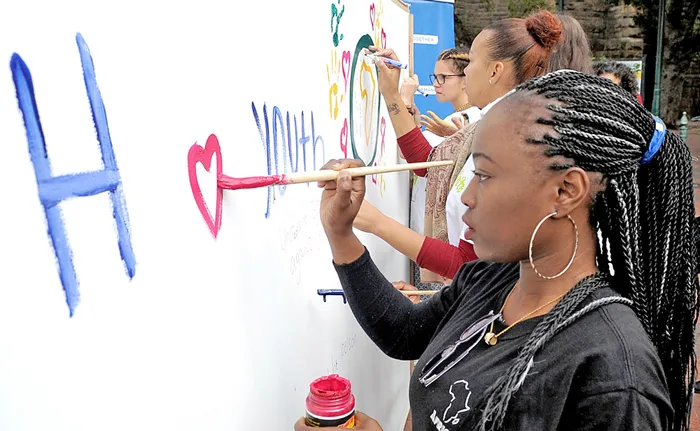Youth month: Right policy choices will accelerate growth, employment

Photo: Bheki Radebe/ANA Archives - We need to focus less on lamenting about youth unemployment and instead on what we can do to create employment, the writer says.
By Ravi Naidoo
Youth Day 2023 needs to be a day of introspection and not a celebration. We should use the day to take stock of how much more we need to do to create a better future for our youth.
Truth be told, the achievements over almost three decades of democracy have been severely underwhelming. Yet, paradoxically, we remain on the cusp of many breakthroughs that can dramatically boost employment.
We all know by now that South Africa’s unemployment rate for those under 35 years old (how we define youth in this country) is a staggering 57%. In actual numbers, 4.8 million young people are looking for jobs, and a further 2.4 million have lost hope (the so-called ‘discouraged work seekers’ that perversely then get dropped out of the StatsSA official unemployment figures).
We also know what is causing unemployment. Unemployment is primarily caused by the lack of economic growth – and South Africa has had little of that for the last 10 years. With no expanding local markets, businesses do less hiring. But even if companies want to hire, there is a skills deficit, stemming from four out of every five children in primary school being unable to read for meaning. The failure of our education system to educate and our economic policies to grow the economy has caused dangerous levels of joblessness that now threaten social stability.
Fortunately, neither of these are terribly difficult problems to solve if we had the will to do so. The South African economy is large and remains surprisingly resilient, despite global challenges and self-inflicted injuries. It was interesting to see that even under very adverse conditions, it created 258 000 jobs in the three months to March 2023. With the right policy choices, we can quickly accelerate economic growth and employment. Sure, load shedding has no quick fix (minimum two years), though, even there, we can collectively rise from the ashes and emerge as a leading global exporter in renewable technologies and ‘green jobs’.
More than that, South Africans are resilient. I notice people are going about their business with a grim determination and wartime humour. At the Youth Employment Service (YES), we find thousands of youth in our programmes, most from the country’s poorest households, remain positive and determined to make the most of their chances.
In fact, maybe we all need to focus less on lamenting about unemployment and instead on what we can do to create employment. We need to spend less time complaining and more time taking decisive action.
Funded 100% through the private sector, YES last year provided stipend salaries to 32 500 youth. Since 2019, as one contribution to youth employment, YES has created 112 334 youth jobs (paying R6 billion in salaries), and 75% of these youth went to work in more than 1 400 private sector companies. This is the largest jobs programme in the country that is fully private sector funded. Unlike public works, our focus is to enable talented youth from disadvantaged households to, on and by themselves, become the game-changers and job creators that South Africa needs.
For example, former YES Youth, Mawanda Faniso, took part in the first YES Drones Academy programme at the Genesis Hub in Saldanha in 2021. He left the academy with a remote pilot’s licence accredited by the Civil Aviation Authority, which allows him to fly drones, as well as a repair and maintenance technician licence, which allows him to fix and work on drones. Today, he works full-time as a drone pilot. In the YES drones programme, the largest in the country, almost a thousand youth pilots have qualified or are in the pipeline to become pilots or even drone company entrepreneurs. They will play a catalytic role in many sectors.
Thousands of YES Youth are being placed in positions like data capturers, business process outsourcing roles, cyber security agents, digital artisans, drone pilots, content creators and software developers. Many of these youth will become professionals in these future-facing sectors and help South Africa emerge as a leading nation in an age of technology. Critical is the need to support and expand the informal economy and small businesses. While township economies are largely informal, they’re also far bigger than we realise. Starting a micro-business can be the first step you need to get into the mainstream economy.
At YES, we have found that 15% of youth in our work programmes have small businesses or “side hustles” to supplement their income and pursue future careers. This is great news and shows that many youths are entrepreneurial. If we cut red tape and offer more support, there could be an explosion of jobs in small businesses. Together, South Africa is more powerful than it thinks it is and can achieve much more than it has until now.
*Ravi Naidoo is the CEO of the Youth Employment Service (YES).